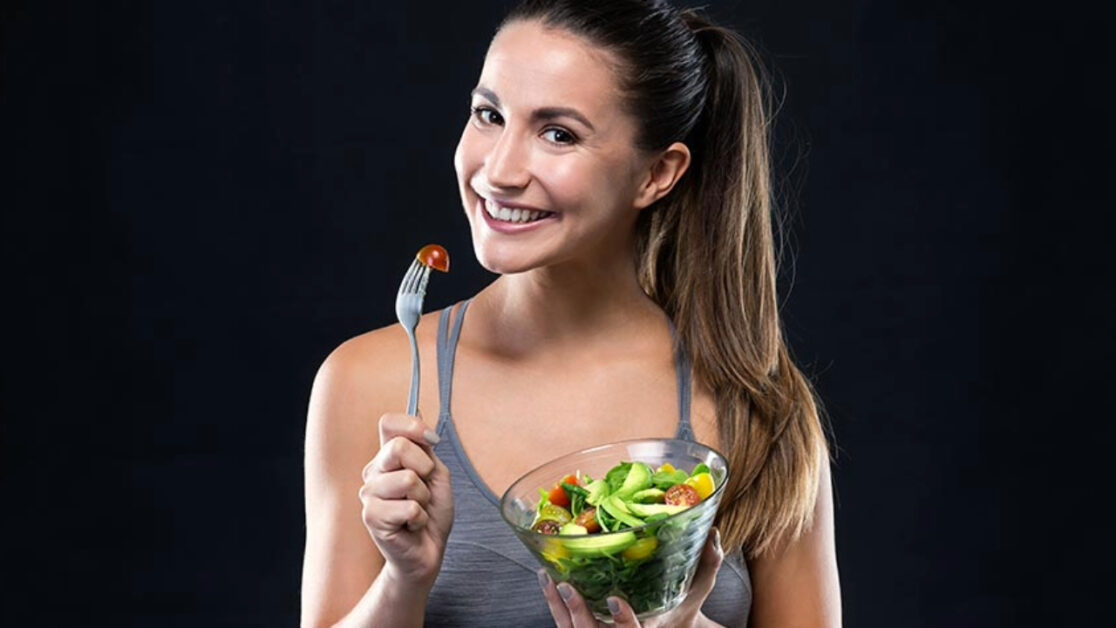Começar uma dieta saudável pode ser um desafio, especialmente para quem não tem muita experiência no universo da alimentação equilibrada.
A boa notícia é que adotar uma dieta saudável não significa passar fome, cortar todos os alimentos que você gosta ou seguir regras extremas. Uma alimentação equilibrada pode (e deve) ser saborosa, variada e adaptada às suas preferências pessoais.
In this guide, we’ll share practical tips and easy recipes for those who are just starting out on the path to a healthier, healthier life. We’ll also explore how to make food choices that contribute to physical and mental well-being, without the hassle.
What is a healthy diet?
A healthy diet is not just a set of foods, but a lifestyle that seeks to balance all food groups in amounts that meet the body’s needs. A healthy diet focuses on consuming essential nutrients — such as vitamins, minerals, proteins, carbohydrates, and healthy fats — that help keep the body functioning properly.
Contrary to popular belief, a healthy diet does not have to be restrictive or monotonous. It should include a variety of natural, whole, and minimally processed foods that provide pleasure and nourish the body in a complete way. In addition, small changes in eating habits can make a huge difference in health and quality of life.
Essential Tips for Beginners
If you’re just starting your journey toward healthier eating, here are some tips to help make the transition easier:
Plan Your Meals
One of the biggest challenges to a healthy diet is a lack of planning. Take some time at the beginning of the week to plan your main meals and snacks. This will help you avoid making impulsive choices that often lead to eating less healthy foods. Try to create a weekly menu that includes breakfast, lunch, dinner, and snacks so that you always have options on hand.
Prioritize Whole Foods
Whole foods are those that undergo fewer industrial processes and preserve most of their original nutrients. This includes fruits, vegetables, whole grains, lean proteins and nuts. These foods provide quality energy, improve the functioning of the digestive system and help control appetite.
Avoid Excessive Consumption of Sugar and Processed Foods
Refined sugars and highly processed foods, such as soda, candy, and fast food, can cause blood sugar spikes and make it harder to control your appetite. Plus, these foods are often low in nutrients. Swap refined sugar for healthier options, such as honey or fresh fruit, and stick to whole foods instead.
Drink Water Regularly
Staying hydrated is essential for the proper functioning of the body. Water helps eliminate toxins, improves digestion and contributes to healthy skin. Try to drink at least 2 liters of water a day and carry a water bottle with you to make it easier to drink throughout the day.
Eat Consciously
Eating mindfully means paying attention to your diet and noticing how your body reacts to different types of food. Avoid eating in front of the television or while using your cell phone. Take time to appreciate the taste, texture and aroma of your food. This practice helps you eat only what you need, avoiding overeating and promoting a healthier relationship with food.
Easy and Healthy Recipes for Beginners
Starting to cook at home is a great way to adopt a healthy diet. Below are some simple recipes that are perfect for beginners and are nutritious, tasty, and easy to prepare.
Colorful Chickpea Salad
Ingredients:
1 cup cooked chickpeas
1 grated carrot
1/2 cucumber cut into slices
1 chopped tomato
Lettuce and arugula leaves to taste
Juice of 1 lemon
Salt and olive oil to taste
Preparation: Mix all the ingredients in a large bowl, season with lemon juice, olive oil and salt. Mix well and serve. This salad is rich in fiber and protein, ideal for a light and nutritious meal.
Pineapple and Spinach Green Smoothie
Ingredients:
1 cup diced pineapple
1/2 cup fresh spinach
1 ripe banana
1/2 cup coconut water
1 tablespoon chia (optional)
Preparation: Blend all the ingredients in a blender until you get a creamy consistency. This smoothie is refreshing, rich in vitamins and fiber, and ideal for starting the day with energy.
Roast Chicken with Potatoes and Rosemary
Ingredients:
2 chicken breast fillets
3 medium potatoes, sliced
2 cloves of minced garlic
Sprigs of fresh rosemary
Olive oil
Salt and pepper to taste
Preparation: Season the chicken fillets with salt, pepper and garlic. Place the potatoes in a baking dish, drizzle with olive oil and scatter the rosemary sprigs. Place the chicken on top of the potatoes and bake at 200°C for about 30 minutes, or until the chicken is cooked and golden. A complete and practical meal for those who want to maintain a healthy diet.
Chia Pudding with Fruit
Ingredients:
3 tablespoons of chia
1 cup of plant-based milk (almond, oat, etc.)
Fresh fruit to taste (strawberry, banana, kiwi)
Honey or natural sweetener to taste
Preparation: Mix the chia seeds with the milk and leave in the refrigerator for at least 2 hours, or until the chia seeds absorb the liquid and the pudding has a thick consistency. Add the fresh fruit on top and finish with a drizzle of honey. This pudding is a great option for breakfast or a healthy and light snack.
Conclusion
Adopting a healthy diet can be simple and rewarding. Remember that the most important thing is to create sustainable habits that fit into your lifestyle. The key to success is consistency and the pleasure of trying new flavors and textures. Start with small changes and progress at your own pace. Over time, you will notice the benefits of a balanced diet on your health, mood and overall well-being.

